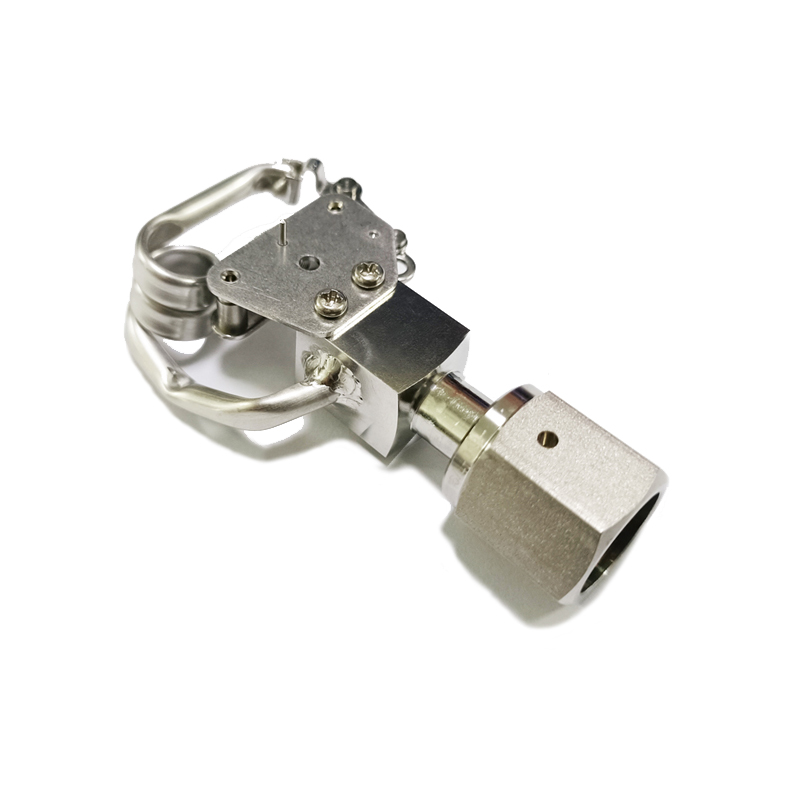
Dec . 25, 2024 14:43 Back to list
Understanding Hydraulic Differential Pressure Gauges and Their Applications in Fluid Measurement
Understanding Differential Pressure Gauges in Hydraulic Systems
Differential pressure gauges are essential instruments used in various engineering fields, particularly in hydraulic systems. These devices measure the difference in pressure between two points within a system, providing critical information for effective monitoring and control of fluid dynamics. This article will explore the principles of differential pressure gauges, their applications in hydraulic systems, and the advantages they offer.
What is a Differential Pressure Gauge?
A differential pressure gauge is an instrument designed to measure the difference in pressure between two points. Unlike a standard pressure gauge, which measures pressure relative to atmospheric conditions, a differential pressure gauge compares the pressure of two separate locations, typically within a fluid system. The gauge is equipped with two pressure ports one for high pressure and one for low pressure. The output is usually displayed in units such as psi, bar, or pascal, and it indicates the net pressure difference.
Operating Principle
The working principle of a differential pressure gauge generally relies on the use of diaphragm or bellow mechanisms. When the pressures at the two points differ, the diaphragm flexes, causing a needle or dial indicator to move, which translates the displacement into a readable measurement. Some advanced gauges utilize electronic sensors and transmitters to provide digital readouts, enhancing precision and readability.
In hydraulic systems, accurate pressure readings are crucial. For example, these gauges can help monitor the pressure drop across filters, ensuring optimal performance and timely maintenance. Additionally, they can indicate issues like blockages, leaks, or inefficiencies in the system.
Applications in Hydraulic Systems
Differential pressure gauges find applications in numerous hydraulic settings. Here are some key areas where they are employed
1. Filtration Monitoring In hydraulic circuits, filters are essential for removing contaminants. A differential pressure gauge can monitor the pressure drop across the filter, helping to determine when it should be replaced or cleaned to maintain system efficiency.
2. Pump Performance Monitoring the differential pressure across a hydraulic pump enables operators to assess pump performance. If the pressure difference falls outside acceptable parameters, it can indicate wear, cavitation, or other issues affecting pump efficiency.
differential pressure gauge hydraulic jah

3. Heat Exchangers In systems utilizing heat exchangers, differential pressure gauges can indicate the flow rates of fluids and monitor the system's thermal efficiency. A significant pressure drop may suggest fouling or blockages, prompting maintenance actions.
4. Hydraulic Cylinders Measuring the pressure difference in hydraulic cylinders allows for monitoring the performance and load levels in applications like industrial machinery and construction equipment.
Benefits of Differential Pressure Gauges
The use of differential pressure gauges in hydraulic systems offers several advantages
- Precision Monitoring These gauges provide a detailed insight into the system's performance by continuously reporting pressure differences, ensuring accurate control and monitoring of hydraulic operations.
- Preventative Maintenance By identifying changes in pressure patterns, operators can schedule maintenance before critical failures occur, ultimately reducing downtime and repair costs.
- Increased Efficiency Understanding the dynamics of fluid flow helps engineers optimize system design and operations, leading to improved efficiency and energy savings.
- Safety In many applications, maintaining proper pressure levels is critical for safety. Differential pressure gauges help identify potentially hazardous conditions before they escalate into emergencies.
Conclusion
In summary, differential pressure gauges play a vital role in the functionality and efficiency of hydraulic systems. By providing accurate measurements of pressure differences, these instruments enhance monitoring, maintenance, and overall system performance. As hydraulic technology continues to evolve, the importance of reliable measurement tools like differential pressure gauges will only grow, ensuring that systems operate safely and efficiently. Whether in industrial applications or everyday machinery, understanding and utilizing differential pressure gauges is critical for successful hydraulic operations.
-
High-Quality Pressure Gauge on Fire Extinguisher - Reliable Water Fire Extinguisher Pressure Gauge Suppliers & Exporters
NewsJul.08,2025
-
High-Quality Water Pressure Differential and Gauge Kit Reliable Manufacturers & Competitive Quotes
NewsJul.08,2025
-
High-Precision Digital Diaphragm Pressure Gauge – Reliable Manufacturer & Competitive Quotes
NewsJul.07,2025
-
Wholesale Diaphragm Pressure Gauge Supplier - Premium Quality & Competitive Price
NewsJul.07,2025
-
Digital Diaphragm Pressure Gauge Reliable & Precise Measurement Top Manufacturers Quotes
NewsJul.06,2025
-
High Accuracy Piston Type Differential Pressure Gauge - Reliable Manufacturers & Competitive Quotes
NewsJul.06,2025
